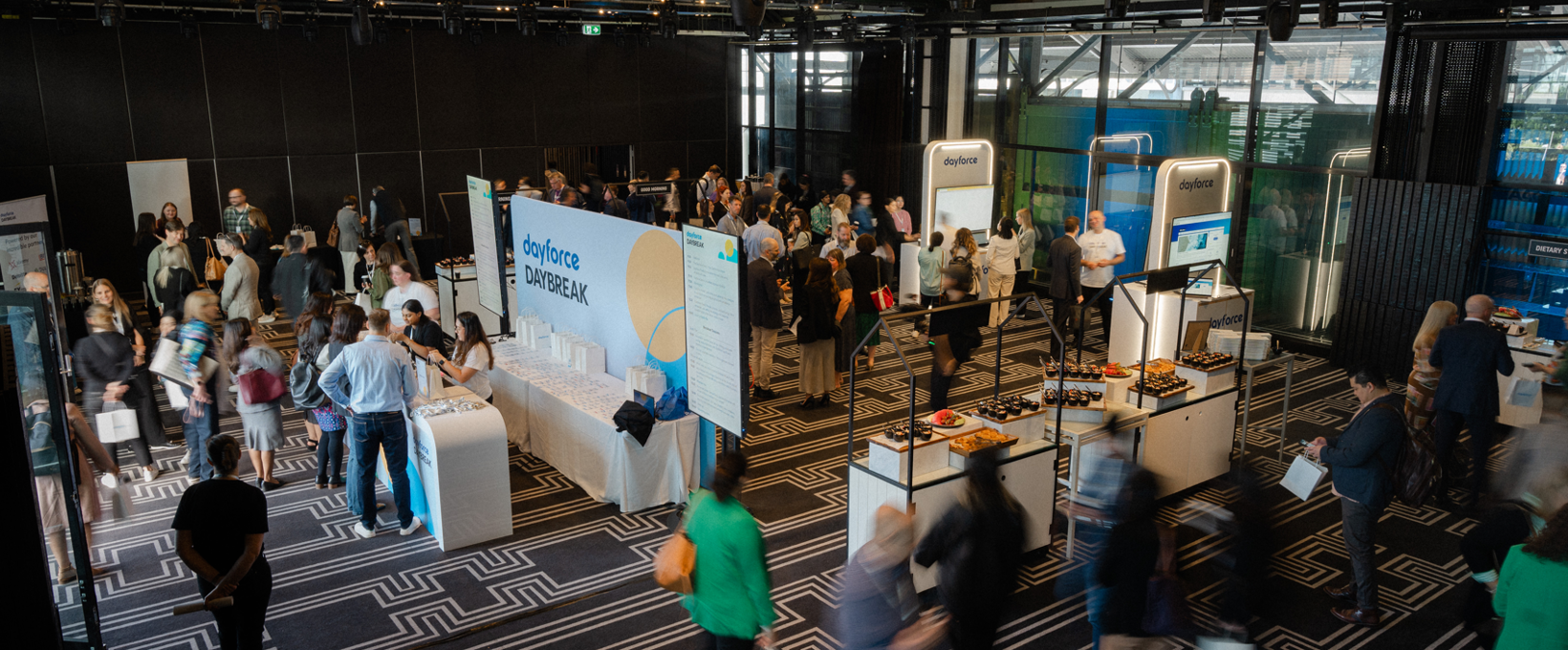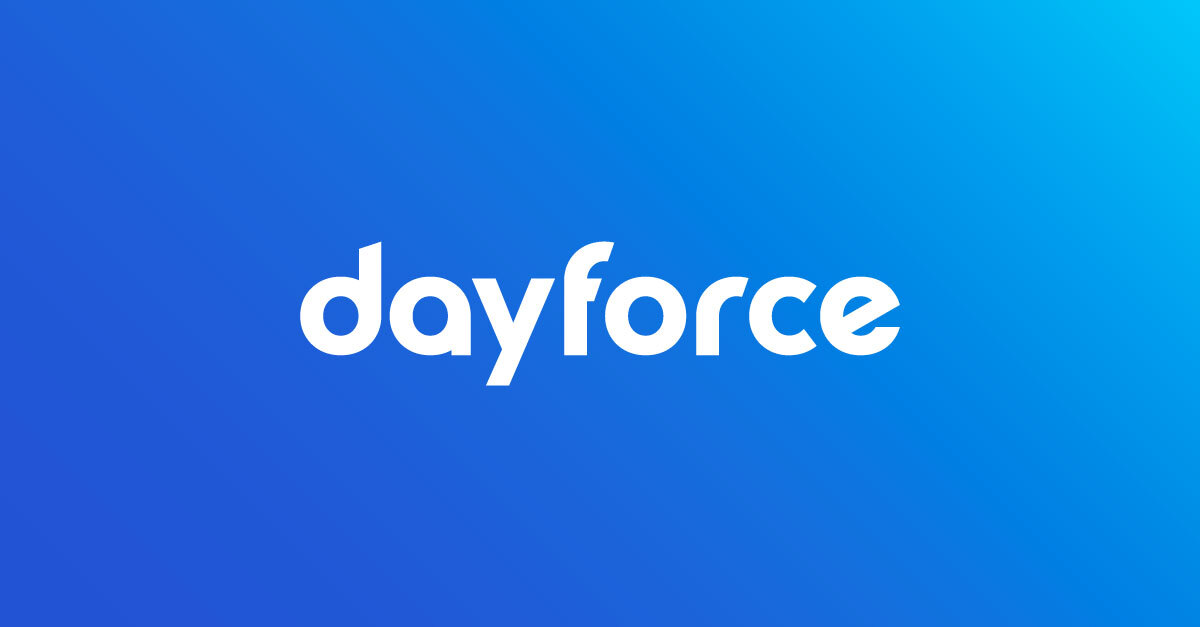Lessons in tackling complexity and driving performance from Dayforce Daybreak Singapore
Discover strategies from Dayforce customers who have transformed complexity into pathways for growth.

The modern workforce is constantly evolving—borderless, flexible, and always on. This new reality is being shaped by flexible work arrangements, more diversity of workers, and increasing compliance complexities. To drive performance amidst the complexity, organisations need strategies that prioritise agility and sustainable growth.
At the first-ever Dayforce Daybreak event in Singapore last September, Dayforce customers, industry experts, and inspiring leaders shared their approaches to building resilient, engaged, and high-performing teams while protecting wellbeing.
The first panel, led by Katerina Hanna (Dayforce’s Vice President of Customer Success for Asia Pacific and Japan), featured Pankaj Mohan Gupta (Head of Payroll Operations, Google APAC) and Susan Vaughan (HR industry leader), who discussed ways to enrich employee experiences in increasingly complex environments.
In the second panel, Suyin Enriquez (Vice President of International HR, Dayforce) was joined by Steven Yong (HR Director Operations and COO ASEAN and ANZ, HSBC) and Anna Wong (HR Director Asia, FCM Travel) to explore how to bridge the gap between executive vision and frontline management.
Here are some of the key takeaways shared during these discussions.
Build engagement through culture - Pankaj Mohan Gupta, Head of Payroll Operations, Google APAC
For Pankaj Mohan Gupta, Head of Payroll Operations at Google APAC, a highly engaged workforce is tied to a culture that prioritises psychological safety and support. When trust is present, employees are more inclined to take informed risks and push boundaries, which ultimately contributes to business growth. This is why Gupta believes that culture is the starting point for nurturing an engaged workforce.
“A strong, engaged workforce has a positive mindset, and that mindset drives innovation and problem-solving.” - Pankaj Mohan Gupta, Head of Payroll Operations, Google APAC
Gupta acknowledges that creating a highly engaged workforce is challenging, particularly within cross-cultural and multigenerational teams with varied needs. He shared how today’s employees expect more from work—flexibility, meaning, and career progression, to name a few. While meeting all these expectations might be difficult, Gupta highlights that it is the intent to do that matters most. He believes that when an organisation is committed to enhancing the employee experience, there are countless ways to make meaningful improvements.
Employee data plays a crucial role in identifying where to focus efforts, says Pankaj. He stresses that data-driven insights allow leaders to identify patterns and refine policies, benefits, and initiatives to meet employees’ top priorities.
Align through values and curiosity - Susan Vaughan, HR Industry Leader
For Susan Vaughan, the journey to a rich employee experience starts as early as recruitment, where alignment between personal and organisational values begins. In her experience, today's candidates seek employers whose values align with their own, asking questions around topics like sustainability and flexibility.
Navigating these values-based needs becomes even more complex with the growing number and complexity of global regulations. Vaughan points to the growing importance of psychological safety, such as the "right to disconnect" laws emerging in places like Australia and Europe. The key challenge for organisations, she notes, is to find the right balance between regulatory compliance and maintaining productivity.
“When working across cultures and generations, it’s really important to be curious, ask open-ended questions, and avoid making assumptions.” - Susan Vaughan, HR Industry Leader
Vaughan emphasises that building a community and sense of belonging is vital. She recommends starting with a clear vision so employees can understand where the company is heading and how they can contribute. Achieving early wins through pilot programs or small initiatives can help gain buy-in and reduce resistance to change.
Empower middle managers to drive performance and retention - Steven Yong, HR Director Operations and COO ASEAN and ANZ, HSBC
Steven Yong sees middle managers as the backbone of employee performance and retention. He highlights that open communication and trust between managers and their teams can resolve most workplace challenges. For this to be effective, he says leaders must recognise that not all middle managers inherently possess these communication skills, making it necessary to provide the right support and training.
“We need to equip middle managers with the skills to have difficult conversations and provide ongoing, constructive feedback." - Steven Yong, HR Director Operations and COO ASEAN and ANZ, HSBC
In regions where direct feedback isn't a cultural norm, Yong recommends creating habits of open dialogue to normalise constructive feedback. By fostering a culture of trust and communication, he says both managers and employees can effectively manage performance and development, enhancing overall workforce engagement.
Happy frontline workers make happy customers - Anna Wong, HR Director Asia, FCM Travel
Anna Wong highlights the impact of frontline employees on customer satisfaction, as they represent the company in everyday customer interactions. She emphasises the need to ensure they have the right environment to thrive because their happiness directly impacts customer satisfaction.
For Wong, performance management starts with clear goals that cascade down the organisation, creating alignment. And to do this, leaders need to build trust. Trust is the foundation of all strong relationships, she says, emphasising that leaders must actively work to demonstrate and build trust within their teams.
“Trust is essential—without it, healthy performance discussions aren’t possible and that’s when issues arise.” - Anna Wong, HR Director, FCM Travel
With trust established, leaders and peers play a significant role in shaping individual performance. Wong suggests that effective leaders not only develop their teams but also encourage growth, even if that means losing talent to other opportunities. She has also seen strong peer relationships further enhance workplace culture, making it a leader's duty to cultivate an environment where these bonds can form. According to Wong, when employees see their colleagues as more than just co-workers, retention becomes much easier.
Helping your workforce prepare for the future
The insights shared at Dayforce Daybreak Singapore highlight the importance of adaptability, culture, and connection in building high-performance teams. Organisations that remain agile, align their strategies, and build meaningful partnerships are better positioned to navigate the future of work.
Disclaimer: The views expressed by the panellists are their own and do not necessarily reflect the opinions or positions of their respective organisations.
You may also like:
Ready to get started?

